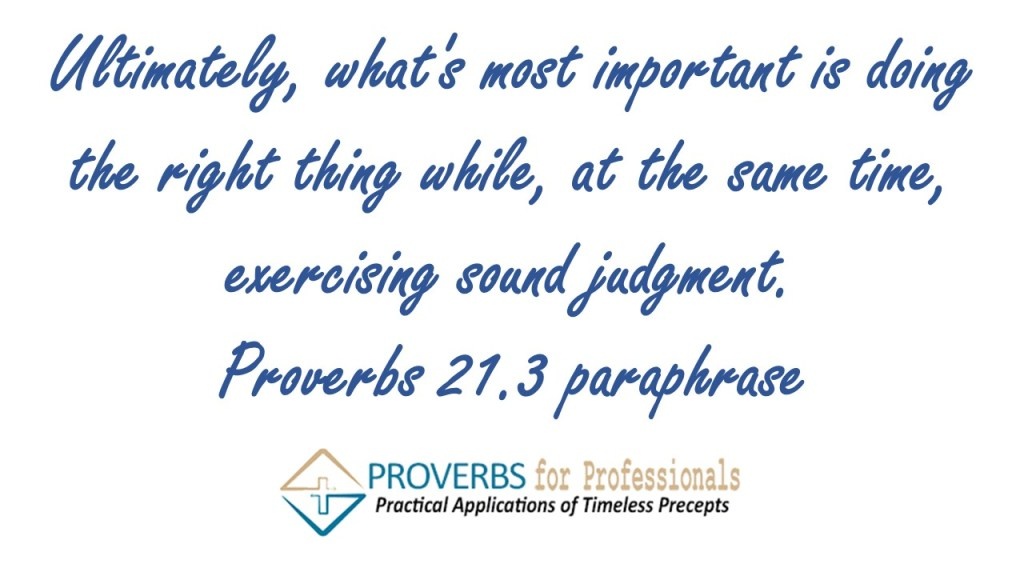I became a person of faith as a child. What follows is a description of my personal faith since that time.
For starters, I want to differentiate between being religious and having a personal faith.
Religion and Personal Faith
For me, being religious can be nothing more than going through the motions of an occasional worship service.
Thus, I satisfy a perceived obligation. As such, I am treating church attendance as a bargaining chip. I trade off an hour of sitting in church for living as I darn well please for much of the rest of my month or year!
Conversely, my personal faith is active and engaged with God the Father. It’s based on a “want to” rather than a “have to.”
Consequently, I desire daily fellowship in the form of prayer and Bible study. Moreover, my decisions include seeking diving guidance.
The scriptural contrast for these two views is worded as mercy or sacrifice. For example, in Proverbs 21.3 Solomon says that doing the right thing (“justice and judgment”) is more acceptable to the Lord than going through the motions (“sacrifice”).
A generation before, Samuel said that obedience was better than empty religion. See First Samuel 15.22.
Later, the prophet Hosea quoted God as saying “I desire mercy and not sacrifice”, see Hosea 6.6. Christ quotes this verse from Hosea in Matthew 9.13 when criticizing the hypocritically religious.
In short, I don’t believe God cares how religious we are. Instead, He deeply desires heart-level fellowship with each of us as a Father to a child.

Faith Defined
The easiest place in scripture to find a definition of faith is in Hebrews Chapter Eleven.
Thus, in Hebrews 11.6 we read we cannot please God without faith. In addition, I must believe that God really exists. And, I must believe that God rewards my efforts to find Him. As such, I have faith that there is a God and that He will respond to me when I seek Him.
Earlier, in Hebrews 11.1, we read that faith is grounded in our hope, instead of that which we see. At its essence, faith is an ability to take God at His word. To believe what He says. To trust Him when I’m unable to see what’s ahead or sense God’s presence.
What Faith Looks Like
It’s important to understand that faith isn’t simply a first-century church concept. Conversely, a personal faith in YAHWEH extends across all of scripture.
For starters, see Genesis 15.6 where we read that Abraham believed – had faith in – the Lord. The response was that God counted Abraham as righteous, that is, right with God. Abraham believed what God had told him.
Later, in Genesis 17.1 when Abraham was having his mid-life crisis, God told Abraham to get on with accomplishing his God-given life purpose! To forcefully drive home the point when speaking with Abraham, God called Himself El Shaddai – God Almighty.
David expressed a similarly deep, personal faith in God. For instance, in the story of the giant, David says “I come to you in the name of the Lord of hosts, the God of…Israel” First Samuel 17.45. His son Solomon also had a deep faith: “Solomon loved the Lord, walking in obedience…” First Kings 3.3.
Among the dozens of other examples of faith, let’s look at one more, from Ephesians 2.8-10. There, we read that we are saved by our faith, not by our good works.
Ok, but for what purpose? We are saved for the purpose of accomplishing good works!

My Personal Faith
As a child, I heard the gospel, made a profession of faith, and was baptized. “Heard the gospel” means I recognized my status before God as sinful. A profession of faith means I confessed who I was and accepted God’s gift to me of salvation.
What followed, throughout the rest of my life was a walk of faith. Note that a walk of faith is very different than a walk of perfection.
I have enjoyed close fellowship with God when I chose to stay in fellowship with Him. When I’m self-willed and stubborn I remain a child of God, but I’m away from the Father as was the prodigal son in Luke Chapter Fifteen.
To eliminate any confusion, the word picture used in the New Testament for being a child of God is adoption. See Ephesians 1.5 where we see the word “adoption” meaning to be placed as a son.
The distinction is important because we easily confuse aspects such as church membership or being raised in a Christian family as making us a person of faith. Actually, we are not natural born children of faith at all!
Instead, we have been adopted into God’s family by exercising faith! We have that opportunity because of what Christ did for us, as described in First John 4.10 “God sent Christ to be the full payment for our sins.”
Describing My Personal Faith
For me, a personal faith is best described as a deliberate choice. Therefore, I intentionally chose to become a child of God. We each must make this choice. For me:
I choose faith.
As such, I choose to believe.
Thus, I choose eternal life.
As a result, I enjoy fellowship with God.
Choice is wonderful, but only IF I choose correctly!
Hence, the ancient call from God in Deuteronomy 30.19 “therefore, choose life so you can live.” That promise in Deuteronomy is to parents, their children, and grandchildren.
Each generation, in turn, must decide to choose life.
My faith is personal – for me. Likewise, each generation that follows must do the same.
My children and grandchildren must make the same choice I made – to choose life.
